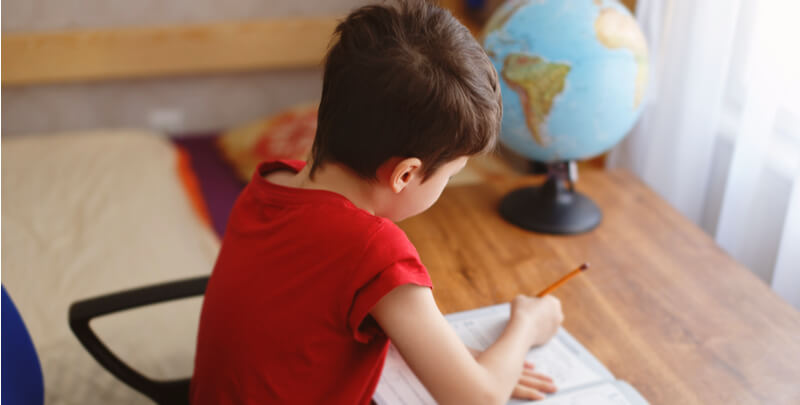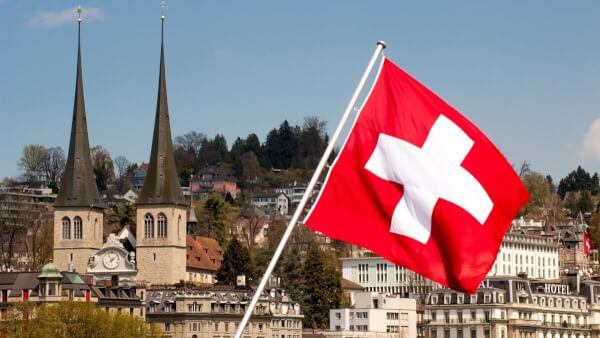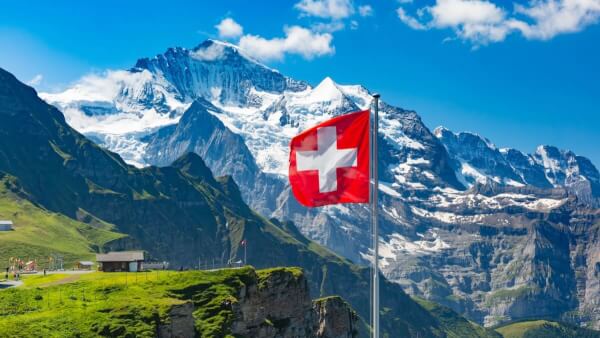Switzerland RSU tax: What you need to know
Find out everything you need to know about Switzerland RSU tax here in our essential guide, including current tax rates.

Many expats choose to makeSwitzerland their home, thanks to the high standard of living - and the fantastic opportunities to get out and about in nature make it a very family friendly option. However, if you’re moving to Switzerland with family, one important question is how to ensure that your children have the best possible education.
The Swiss state education system is rated above average at attainment in science and maths among OECD countries, and has been stable for over a decade. Because education is overseen by individual cantons, each region has a slightly different system, although the basic building blocks are the same. For older children, students split out at around 12 years old, to academic or vocational schools, to follow the path best suited to them. Alternatively, there's a choice of international and private, fee paying schools, which are popular with the international community. If you’re considering your options, you can compare the standard of education in Switzerland with that available in your home country, with the PISA assessment framework from the OECD.
Whether you’ve already got your Swiss work visa, and have your move fully planned or are just starting to think about life overseas, it helps to know a little about the education options in Switzerland. Here is a quick guide.
The Swiss education system is decentralised and you can find the exact details for schooling in your area on the canton’s education department website. The system and rules vary by region, with some cantons starting mandatory schooling at age four and others at six. Similarly, the day to day structure of schooling might be different from one place to the next, making switching between schools in different cantons fairly difficult.
In general terms, schooling consists of primary school (which might include a pre-school element in some areas), lower secondary and upper secondary school. Usually it's compulsory to attend school for either nine or eleven years, depending on the rules of the canton. Because Switzerland has several official languages, the phases of schooling are also known by different names in different places. For simplicity, this guide uses the English names only.
| Pre-school | Pre-school is compulsory for two years in some cantons, for one year in others, and completely optional elsewhere where it's mandated for two years, children enrol age four |
| Primary School | Compulsory from age six for all childrenPrimary school typically lasts between four and six years depending on the cantonEducation at primary level is free |
| Secondary School | Split into a lower and higher cycle, with lower education typically for students aged from around 11Higher secondary education is optional, and begins aged 15 or 16 |
Pre-school in Switzerland isn't always compulsory. You can check details for your area with the canton’s education department. In some regions, pre-school is mandatory from age four, for two years prior to primary. In cantons where early education isn't a legal requirement, it's still a popular option, and parents can enrol their children in private pre-schools. The curriculum at this stage is mainly play, but basic skills in reading and writing are taught from about five years old.
From the age of around six it’s compulsory to attend primary school in Switzerland, although there are a couple of cantons where children typically start at age five. This stage of schooling is provided free of charge.
Primary school in most areas lasts for six grades, and the curriculum is broad, covering basic skills, physical education and languages. Because Switzerland has four official languages, it's typical for even very young children to learn their local language, a second of the Swiss national languages, and English.
Children progress to the next grade if they've made enough progress. However, it's not particularly unusual to repeat a grade, and in some areas, children of different age groups are placed in the same class, and learn together during the early stage of primary.
Secondary education in Switzerland is split into a mandatory period of lower secondary school, and an optional higher secondary education. The exact structure depends on your canton, but typically lower secondary starts aged around eleven, and upper secondary is for students aged 15 or 16. Students might be split at the end of primary education to attend either a vocational school or a more academically focused institution. Throughout secondary education, students are streamed by ability and cover a broad curriculum which includes several languages, maths, science, arts and PE. Some vocational training is also offered.
The mandatory schooling period ends at the ages of about 15 or 16, but the vast majority of students elect to stay in school to 18, following the higher secondary programme. At this stage, students select a vocational training programme, a specialised school or a baccalaureate school, depending on their career aspirations and whether they intend to go to university.
The school year in the Swiss state system is arranged into two semesters. Usually the new school year starts in mid-August or September, although the exact dates vary slightly according to the canton rules. Typically schools operate from around 8:30am to 4pm, with a long lunch break. In some schools children are expected to return home to eat lunch, although many offer care over the long lunch time.
It’s worth noting that this calendar applies to state schools only - in private and international schools the calendar and hours will be set independently.
Schooling in the Swiss state system is free, although you may be charged small fees for things like transport and school materials. Swiss schools don't have uniforms, cutting out a common cost for parents. If you don't choose the state system and decide to find a private international school, the costs are invariably high.
Switzerland has a large number of international schools, mainly in the major cities, teaching in English and other major world languages, and often using the International Baccalaureate syllabus. In fact, the International Baccalaureate was first created in Switzerland, and is now offered in thousands of schools around the world.The Swiss Group of International Schools represents a number of the best international schools in Switzerland, and is a good place to start if you're researching your Swiss schooling options.
International schools are generally of a high standard, and therefore typically competitive, with testing and interviews to secure admission. You can expect the fees to vary widely depending on the specific school and the programme they offer.
Moving to a new country is always a personal and financial upheaval. When it comes to schooling, whichever route you decide is best for your family, there will be costs involved, and you don’t want to pay more than you have to. If you’re funding your child’s education from your account back home, use Wise to get the real exchange rate and cut out expensive international bank transfer fees.
*Please see terms of use and product availability for your region or visit Wise fees and pricing for the most up to date pricing and fee information.
This publication is provided for general information purposes and does not constitute legal, tax or other professional advice from Wise Payments Limited or its subsidiaries and its affiliates, and it is not intended as a substitute for obtaining advice from a financial advisor or any other professional.
We make no representations, warranties or guarantees, whether expressed or implied, that the content in the publication is accurate, complete or up to date.

Find out everything you need to know about Switzerland RSU tax here in our essential guide, including current tax rates.

Read our helpful guide on how to transfer a UK pension to Switzerland, including the steps, fees and taxes involved.

The complete guide to buying property in Switzerland as a foreigner. Read about how to buy Swiss property, average prices, fees, and more.

Everything you need to know about moving to Switzerland from the UK. Read about visas, popular expat destinations, healthcare and more.

Switzerland offers many perks for anyone moving there from the UK. But, there are also some downsides to look out for. Read on to learn more about both sides.

Your essential guide to the cost of living in Switzerland, including average prices for rent, transport, healthcare, education and much more.